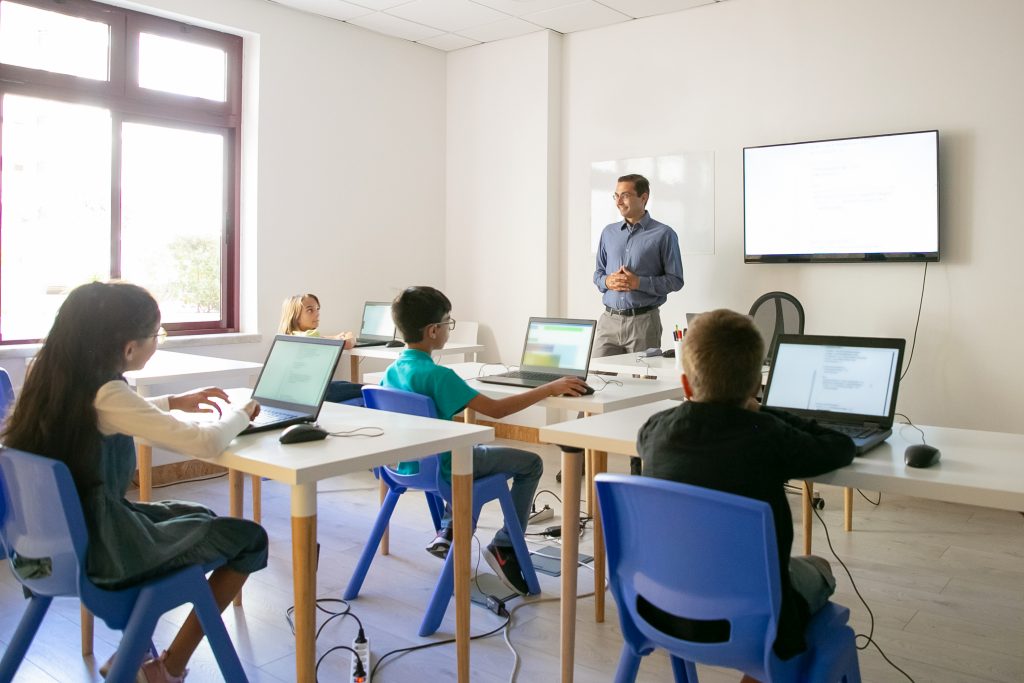Introduction
The Central Board of Secondary Education (CBSE) is the most renowned educational board in India, responsible for shaping the academic landscape and nurturing millions of young minds. As we move forward into the future, CBSE education is poised for significant transformations, driven by technological advancements, changing pedagogies, and evolving student needs. This article delves into the trends and innovations that will shape the future of CBSE education, exploring various aspects that educators, students, and parents need to be aware of.
The Future of CBSE: Trends and Innovations in Education
Technology Integration: Empowering Learning
In the digital age, technology is becoming an indispensable part of education. Integrating technology into CBSE classrooms can revolutionize the learning experience, making it more interactive, engaging, and effective.
Personalized Learning: Tailoring Education to Individual Needs
Every student has unique learning abilities and preferences. Personalized learning approaches, such as adaptive assessments and customized study plans, can cater to individual needs, fostering better academic outcomes.
Competency-Based Education: Emphasizing Skill Mastery
In the future, CBSE education will likely shift towards competency-based models, focusing on students’ mastery of skills rather than conventional exam-based assessments. This approach promotes practical application and a deeper understanding of concepts.
Experiential Learning: Learning by Doing
Experiential learning methodologies encourage students to learn through hands-on experiences, promoting critical thinking and problem-solving skills. CBSE schools might adopt project-based learning and outdoor activities to make education more practical and engaging.
Blended Learning: The Best of Both Worlds
Combining traditional classroom instruction with online learning components results in a blended learning approach. This enables students to benefit from face-to-face interactions with teachers while enjoying the flexibility of digital resources.
Artificial Intelligence in Education: Personal Assistants for Students
AI-powered educational tools can act as virtual tutors, providing personalized assistance to students, identifying learning gaps, and offering targeted study materials. The integration of AI can significantly enhance the learning process.
Gamification: Enhancing Engagement and Motivation
Gamification elements, such as badges, rewards, and interactive quizzes, can make the learning journey enjoyable and motivate students to achieve academic milestones.
Teacher Training and Professional Development: Empowering Educators
As education evolves, teachers must be equipped with the latest pedagogical techniques and technological skills. Comprehensive training and development programs for educators will play a crucial role in ensuring the success of innovative teaching methodologies.
Global Collaborations: Broadening Perspectives
With advancements in communication technology, CBSE schools can establish collaborations with institutions worldwide, providing students with opportunities to interact with diverse cultures and gain global perspectives.
Assessment Reforms: Moving Beyond Exams
The future of CBSE education might witness a shift from traditional exams to alternative forms of assessment, such as project portfolios, presentations, and practical evaluations, enabling a comprehensive evaluation of students’ abilities.
Eco-Friendly Initiatives: Promoting Sustainable Education
As environmental concerns grow, CBSE schools may embrace eco-friendly practices, incorporating sustainability education and adopting green measures within their campuses.
Augmented Reality (AR) and Virtual Reality (VR) in Education
AR and VR technologies can transform the way students perceive and interact with educational content. Immersive experiences can make complex concepts more accessible and stimulating.
Ethical Education: Fostering Values and Social Responsibility
Beyond academic excellence, CBSE education should emphasize imparting ethical values, empathy, and social responsibility to nurture well-rounded individuals committed to the betterment of society.
Counseling and Mental Health Support: Holistic Well-being
The future of CBSE education must prioritize the mental well-being of students by offering counseling services and support systems to help them cope with academic pressure and personal challenges.
Multilingual Education: Embracing Linguistic Diversity
CBSE schools should recognize and celebrate the linguistic diversity of India by offering multilingual education options, fostering respect for different languages and cultures.
Data Privacy and Security: Safeguarding Student Information
As technology becomes more integrated, ensuring the privacy and security of student data is paramount. CBSE institutions must adopt robust data protection measures to safeguard sensitive information.
Green Technologies: Sustainable Infrastructure
CBSE schools can embrace renewable energy sources, eco-friendly architecture, and sustainable infrastructure to reduce their carbon footprint and promote environmental awareness among students.
Collaborative Learning: Building Teamwork Skills
Encouraging collaborative projects and group activities fosters teamwork and communication skills, preparing students for future professional and social engagements.
Inclusive Education: Supporting Special Needs
Inclusivity in CBSE education involves providing necessary support and accommodations for students with special needs, ensuring equal opportunities for quality learning experiences.
Community Engagement: Connecting Education with Society
CBSE schools can actively engage with local communities, undertaking social initiatives and service projects to instill a sense of responsibility and empathy among students.
Entrepreneurship Education: Nurturing Innovators
The future of CBSE education might include entrepreneurship programs, encouraging students to explore their creative ideas, develop problem-solving skills, and become future innovators and job creators.
Neuroscience and Learning: Understanding the Brain
Advancements in neuroscience can offer insights into how students learn best, leading to more effective teaching strategies and optimized learning experiences.
Career Guidance and Exploration: Navigating Future Pathways
CBSE schools should incorporate comprehensive career guidance programs to help students identify their interests, aptitudes, and career aspirations. Through career counseling and exposure to various professions, students can make informed decisions about their future pathways.
Flexible Learning Spaces: Adapting to Changing Needs
The physical learning environment plays a vital role in students’ educational experiences. Creating flexible learning spaces that accommodate different teaching methods and student preferences can enhance creativity and collaboration.
Lifelong Learning: Cultivating a Growth Mindset
Encouraging a growth mindset among students fosters a love for lifelong learning. CBSE institutions can nurture a passion for knowledge, instilling the belief that abilities can be developed through dedication and hard work.
The Rising Popularity of Coaching Classes with the Changing Trends of CBSE Education
CBSE Curriculum Complexity
The CBSE curriculum has become more comprehensive and challenging over time, requiring students to delve deeper into subjects. Coaching classes provide specialized guidance to help students navigate through the complexities of the curriculum.
Increasing Competitive Environment
With mounting competition in the academic sphere, students are under immense pressure to perform exceptionally well in CBSE examinations. Coaching classes offer personalized attention, enabling students to enhance their understanding and performance.
Focus on Entrance Examinations
Many students aspire to pursue higher education in prestigious institutes. Coaching classes often prepare students for competitive entrance exams like JEE (Joint Entrance Examination) and NEET (National Eligibility cum Entrance Test), opening doors to top-tier institutions.
Advantages of Coaching at Arihant Academy
Personalized Attention and Guidance
We have smaller batches, allowing teachers to provide individual attention to students. This personalized approach helps identify and address specific learning needs, ensuring better understanding and retention.
Enhanced Conceptual Clarity
Qualified and experienced instructors at Arihant Academy emphasize building a strong foundation and conceptual clarity. This approach enables students to grasp complex topics with ease and apply their knowledge effectively.
Regular Practice and Assessment
We conduct regular tests and assessments, aiding students in identifying their strengths and weaknesses. This iterative learning process helps in gradual improvement and confidence-building.
Time Management Skills
CBSE exams often come with strict time constraints. We equip students with effective time management strategies, enabling them to complete exams within the allocated time while maintaining accuracy.
Access to Learning Resources
Arihant Academy provides access to a wide range of study materials, including textbooks, practice papers, and online resources. These materials complement the school curriculum, fostering a holistic learning experience.
Holistic Development
Apart from academic excellence, coaching classes also focus on students’ overall growth. They emphasize personality development, communication skills, and problem-solving abilities, preparing students for various challenges in life.
To know about Arihant Academy’s CBSE Coaching
Conclusion
The future of CBSE education is both promising and transformative, with trends and innovations paving the way for student-centered, technology-driven, and sustainable learning environments. Embracing personalized learning, AI integration, and experiential learning will empower students to thrive in an ever-changing world. By fostering a growth mindset and promoting ethical values, CBSE schools can nurture responsible, well-rounded individuals ready to make a positive impact on society.
In conclusion, the future of CBSE education is full of opportunities and possibilities, and educators, students, and parents must be prepared to adapt and embrace these changes for the betterment of Indian education.
Coaching classes provide personalized attention, enhanced conceptual clarity, and regular assessments, which collectively improve students' understanding and performance.
No, coaching classes also prepare students for competitive entrance exams like JEE and NEET, facilitating their admission to renowned institutes.
Coaching classes offer smaller batches, individualized attention, and specialized study materials that complement traditional school education.
Coaching classes have embraced digital transformation, adopted a blended learning approach, and focused on personalized learning paths.
Yes, coaching classes emphasize holistic development, including personality, communication, and problem-solving skills.


